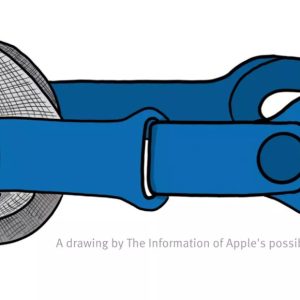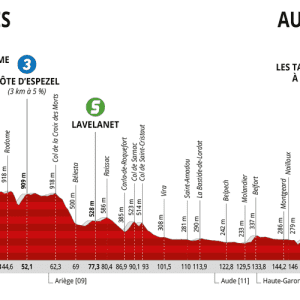A virtual world where you can not only communicate, but also carry out all your daily activities, from work to social life to games. This is the idea behind space that is starting to stop being science fiction and become reality. But what about what the metaverse is, actually. How does it work, who drives it? We answer all your questions.
What is metaverse?
The metaverse is an environment in which humans interact socially and economically as avatars in cyberspace, which serves as a metaphor for the real world but without its physical or economic limitations.
This concept was coined by American writer Neil Stephenson in 1992, in the novel Snow Crash (1992), where he describes a collective virtual space compatible with and converging with “real reality”.
Stevenson’s reflections unfold in the form of an urban environment developed along a single, hundred-meter-wide road surrounding the circumference of a planet. Users access it through glasses on personal or public stations, posing as an avatar, traveling around the planet on foot or in vehicles.
Who Runs Metaverse
Although in mid-2021, Facebook CEO Mark Zuckerberg confirmed that the company was working on its metaverse, it was a series of initiatives developed over the past two decades that actually gave the necessary impetus to this technology.
When it comes to hardware, virtual reality glasses and eyeglasses have played a major role in connecting the two worlds. In this area, technologies promoted by Oculus (now owned by Facebook) and Microsoft, HoloLens glasses, HTC Vive systems, and PlayStation VR headsets stand out.
In the field of software, the first initiative of this kind saw the light of day in the first half of the 1990s. Steve Jackson Games launched The Metaverse in 1993, a popular online text-based virtual reality system. The users were logged in at one time and it was used in the Illuminati online newsletter.
At the time, internet access was limited to a few users and VR glasses were not available. And if other projects saw the light, it wasn’t until mid-2010 that projects began to take shape closer to Stevenson’s dream.
Some of the current projects include:
Facebook social networking site
In 2014, the Zuckeberg company acquired virtual reality glasses company Oculus. Since then, it has launched several initiatives aimed at creating a virtual world. One of the most advanced projects is Facebook Horizon, an online video game that allows users to create avatars and interact with objects using virtual reality glasses. Horizon Workrooms, a tool for the workplace, is also part of this approach.
Microsoft
With HoloLens 2 as one of its central elements — though they are compatible with other devices — the Californian company released in 2021 Microsoft Mesh, a mixed reality software that allows for virtual communication. According to Microsoft, this app makes it easy to “share and experiment from anywhere, on any device.” It includes elements from AltspaceVR, a virtual reality social platform that Microsoft acquired in 2017.
Epic Games
Fortnite, Minecraft or Roblox are the most popular video games in recent years, as they allow you to build virtual worlds. In Fortnite Season 5, Epic Games created a phenomenon called “Ground Zero,” which allowed characters and stories from movies, shows, and games to meet in-game. In 2021, it announced that it would raise funds to develop the metaverse title listing.
Other initiatives
- Sensar (2017/2020): It is a virtual reality platform developed by Linden Lab, the same creators of Second Life. It creates 3D spaces, where users can participate, play games, watch videos, and have virtual reality conversations. Each participant is represented by an avatar who recognizes gestures and movements thanks to a virtual reality headset.
- Decentraland (2020): It is a decentralized 3D virtual world that is owned by the users who are also responsible for its operation. The beginnings go back to 2015, when Argentines Ari Milic and Esteban Ordano created a network that allocated pixels to users through an algorithm. Today, their plots sell for more than $100,000.
- Rival Peak (2020): It is an online reality show featuring candidates in a virtual environment. Viewers can contribute to the candidate’s progress by watching or interacting through Facebook Watch.
- Galaxie Sensorium (2021): It is a metaverse containing virtual reality concerts by electronic music artists, and is in closed beta. It is compatible with most VR headsets and glasses.
- South Korea (2021)The South Korean government has announced the creation of a national metaverse alliance with the goal of building a unified national platform for virtual and augmented reality.
What you can do in Metaverse
If these experiences prove decisive, the metaverse(s) will likely become the gateway to most digital experiences and the natural successor to what is today the Internet. Some of the uses identified for these spaces include:
ConcertsIt will provide the ability to actually enter a 3D concert, after initially viewing it on a 2D screen. For example, in 2019, rapper Travis Scott starred in a party in Fortnite and attracted around 100,000 users.
UsesFacebook is highlighting Infinite Office, a space that allows users to create their ideal workplace through virtual reality.
Video games : Another possibility is that a user who gets a reward in a video game can then view it outside of the title, but in other instances of the same metaverse, to show it to virtual friends, for example.
The metaverse is still a long way off. Besides the lack of infrastructure, there are further discussions and uncertainties about how to implement this business model, whether through subscription, virtual purchase or advertising, as well as protecting life, privacy and user data usage.

“Certified gamer. Problem solver. Internet enthusiast. Twitter scholar. Infuriatingly humble alcohol geek. Tv guru.”





